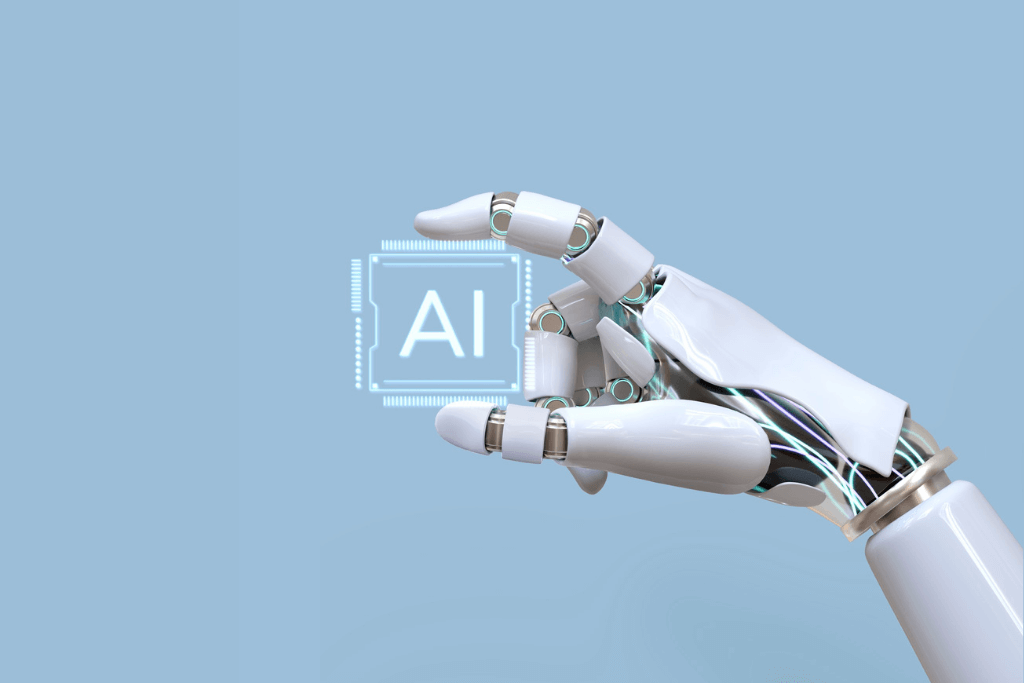Healthcare Efficiency with Artificial Intelligence

Healthcare Efficiency with Artificial Intelligence
Artificial intelligence technology is used in many different areas in health services and provides great benefits. Especially areas such as artificial intelligence supported diagnosis systems, robotic surgery applications and disease prediction increase efficiency in health services. Thanks to these developments, the treatment process of patients takes place faster and more effectively.
In addition, artificial intelligence technology is also very effective in disease diagnosis. It helps in the early diagnosis of diseases that cannot be diagnosed easily, such as cancer diagnosis. Thanks to the development of customized treatment methods, it is possible for patients to have a more effective treatment process.
Artificial intelligence technology is also very useful in hospital management and helps hospitals perform their transactions faster and more efficiently. In this way, the hospital staff is less tired and a more efficient work flow is provided.
In general, artificial intelligence technology has a very important place in the health sector and is expected to be used even more in the future. Artificial intelligence technology, which has a great impact on the efficiency of health services, plays a major role in the development of the health sector by allowing patients to be treated more quickly and effectively.
Artificial Intelligence Supported Diagnostic Systems
Diagnostic systems powered by artificial intelligence are one of the most important advances in the healthcare industry. These systems help doctors in the diagnosis and treatment processes of diseases by analyzing data. Since correct diagnosis means correct treatment, more accurate and faster diagnosis is made with the support of artificial intelligence. This ensures that the treatment processes of patients are accelerated and managed more effectively.
In addition, artificial intelligence allows doctors to take advantage of large datasets by analyzing data. This means pre-diagnosis of many diseases and preventive measures can be taken. AI-assisted diagnostic systems, when further developed, can have much higher accuracy compared to traditional diagnostic methods.
- Artificial intelligence makes the right diagnoses in health services by analyzing data and helps patients to undergo the right treatment processes.
- Doctors can make faster and more effective decisions in the diagnosis process by obtaining detailed data by artificial intelligence.
- Thanks to artificial intelligence support, the treatment process of patients is faster and hospitals work more efficiently.
Artificial intelligence support allows for the further development of health services. It allows for safer operations as it helps doctors manage the massive data flow that they need to follow during the operation. Therefore, as the use of artificial intelligence supported diagnosis systems increases, the diagnosis, treatment and operation processes of doctors will increase even more.
Robotic Surgery Applications
Robotic surgery applications bring innovations in the field of surgery thanks to artificial intelligence. These applications make it possible to carry out operations in areas that were not possible before. Thanks to artificial intelligence supported robotic surgery applications, operations can be performed more precisely and safely. This helps accelerate the recovery process of patients.
Another important advantage of these applications is that they allow surgeons to have more data during the operation. Especially during complex operations, artificial intelligence systems can provide important clues to surgeons and reduce the risk of error. In addition, robotic surgery applications also help to shorten the operation period and to discharge patients faster.
Artificial intelligence supported robotic surgery applications are currently being used in many hospitals. Thanks to this technology, surgical interventions can be performed more safely and more effectively. This allows patients to have a more successful treatment process and to recover faster.
Artificial Intelligence Assisted Disease Prediction
Artificial intelligence gives very successful results in disease prediction. By analyzing the data, artificial intelligence supported health systems can determine in advance which diseases patients are prone to. In this way, it becomes possible to diagnose diseases early and take preventive measures.
Artificial intelligence systems can detect risk factors as a result of analyzing the health data of patients and can predetermine the susceptibility to diseases. In this way, patients can change their unhealthy lifestyles, prevent diseases and lead a healthy life.
In addition, artificial intelligence systems used in hospitals can make disease predictions based on patients' past health data and can improve patients' recovery more quickly by developing customized treatment methods.
All these developments increase the efficiency of health services and the quality of life of patients increases with the early diagnosis of diseases. Artificial intelligence-assisted disease prediction will be used more in the health sector in the future and will have an important place in increasing the efficiency of health services.
Cancer Diagnosis
Cancer is among the deadliest diseases today. But artificial intelligence technology plays an important role in cancer diagnosis. Artificial intelligence systems detect cancer cells by analyzing various data and help diagnose the disease early. In this way, the treatment process of the patients starts earlier and the effect of the intervention increases. Artificial intelligence-assisted cancer diagnosis systems are of great importance for researchers as well as doctors. Thanks to these systems, more in-depth information about cancer cells can be obtained and more effective treatment methods can be developed based on this information.
However, artificial intelligence technology is used only as an auxiliary tool in cancer diagnosis and depends on the expertise of doctors. Although AI-assisted diagnostic systems help to obtain more accurate results by preventing doctors from making erroneous diagnoses, the expertise and experience of doctors in the diagnosis and treatment process is still very important. Therefore, artificial intelligence technology should only be used as a tool in cancer diagnosis and doctors' opinions should be taken into account.
Customized Treatment Methods
Thanks to artificial intelligence, the characteristics of the patients can be analyzed and as a result, customized treatment methods can be created. These methods are determined according to the type of disease of the patients, the progression of the disease and other factors. Thus, the treatment processes of the patients become more predictable and the success rates in treatment increase.
In addition, analysis processes can be carried out faster and more accurately, as artificial intelligence comes into play. In this way, the treatment process of the patients can be completed in a shorter and more effective way, and the healing process can be accelerated.
However, thanks to customized treatment methods, unnecessary treatments can be avoided. By paying attention to the age, gender, genetic characteristics and lifestyle of the patient, among other factors, artificial intelligence prevents unnecessary treatments and ensures that patients receive only the treatments they need.
Artificial Intelligence Supported Hospital Management
Artificial intelligence plays a very effective role in the management of hospitals. Thanks to artificial intelligence supported hospital management applications, transactions in hospitals can be carried out more quickly and efficiently. Performing these procedures faster and more efficiently helps patients to be treated more quickly.
Artificial intelligence-supported hospital management applications allow hospital staff to determine which operations should be done first. In this way, the workload in the hospital can be reduced and patients can be treated more quickly. In addition, thanks to artificial intelligence supported hospital management applications, it is possible to use resources more effectively.
Another advantage of artificial intelligence supported hospital management applications is that the patient care process can be managed better. Thanks to these applications, the treatment updates and medications of the patients can be followed more effectively. In addition, patient reports can be created more quickly and accurately.
As a result, artificial intelligence supported hospital management applications accelerate the operation of hospitals and make them more efficient. In this way, patients can be treated more quickly and resources can be used more effectively.
Conclusion
Artificial intelligence has a very high potential in the health sector. Artificial intelligence makes a big difference in the efficiency of health services with hospital management and diagnostic systems. However, AI-assisted disease prediction and customized treatment methods are helping to treat patients more effectively.
In the future, artificial intelligence technology will develop further and be used more widely in the healthcare industry. This will allow patients to receive better health care and to carry out their treatment more effectively and quickly.
As a result, artificial intelligence has a very important role in the health sector and it is predicted that this role will increasingly continue in the future. With the use of this technology, the efficiency of health services will increase and it will help patients to receive a higher quality health service.








